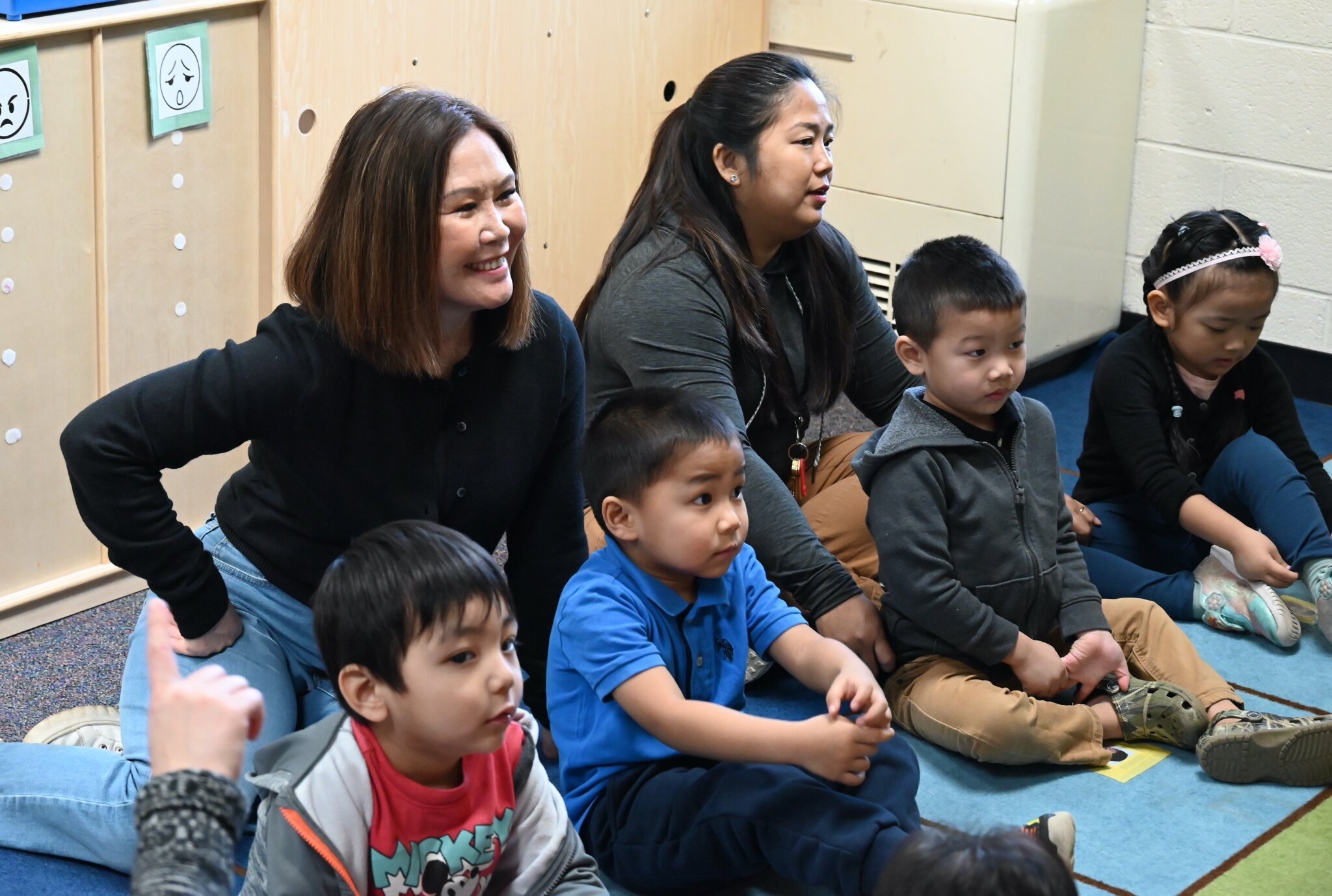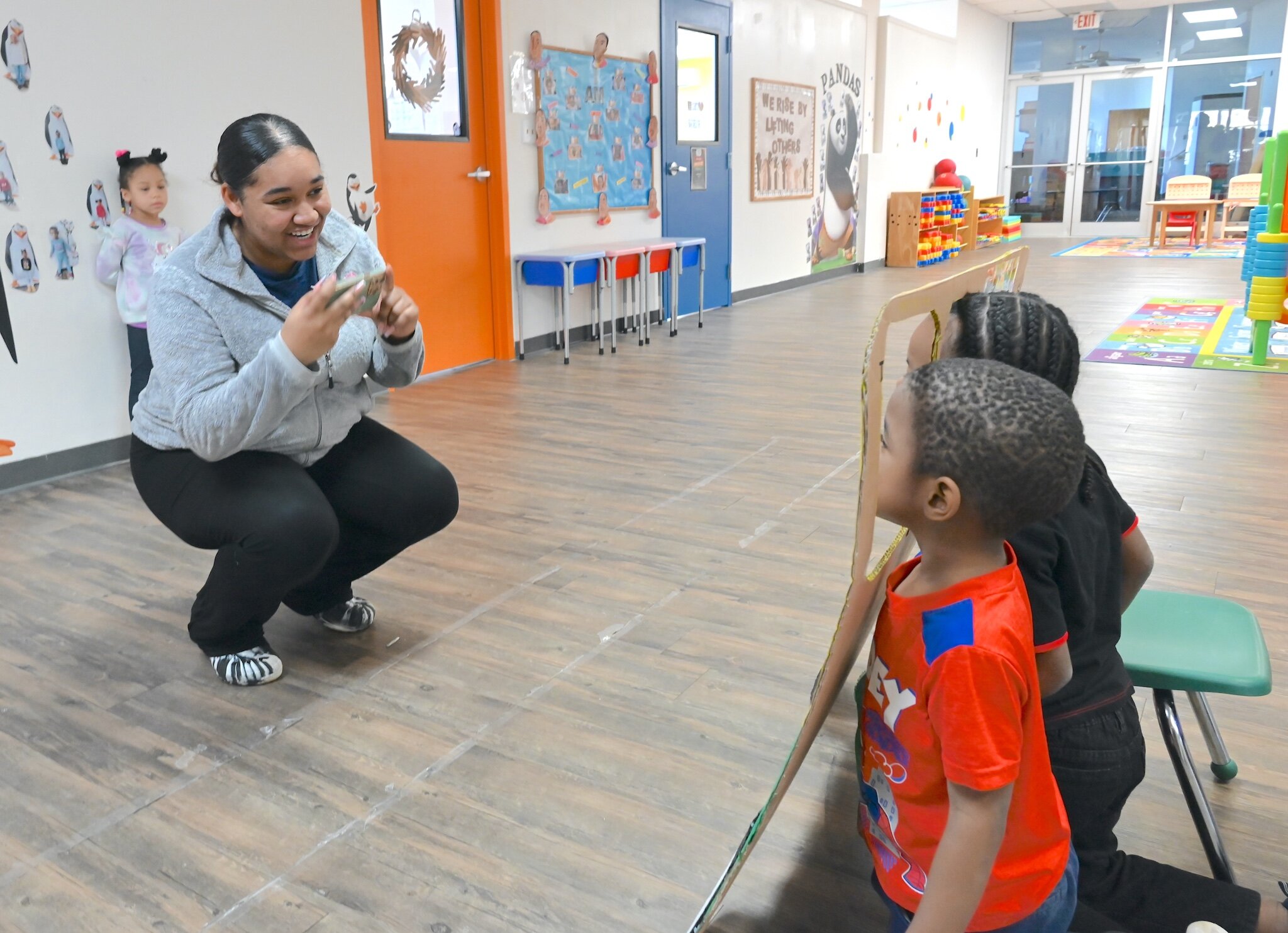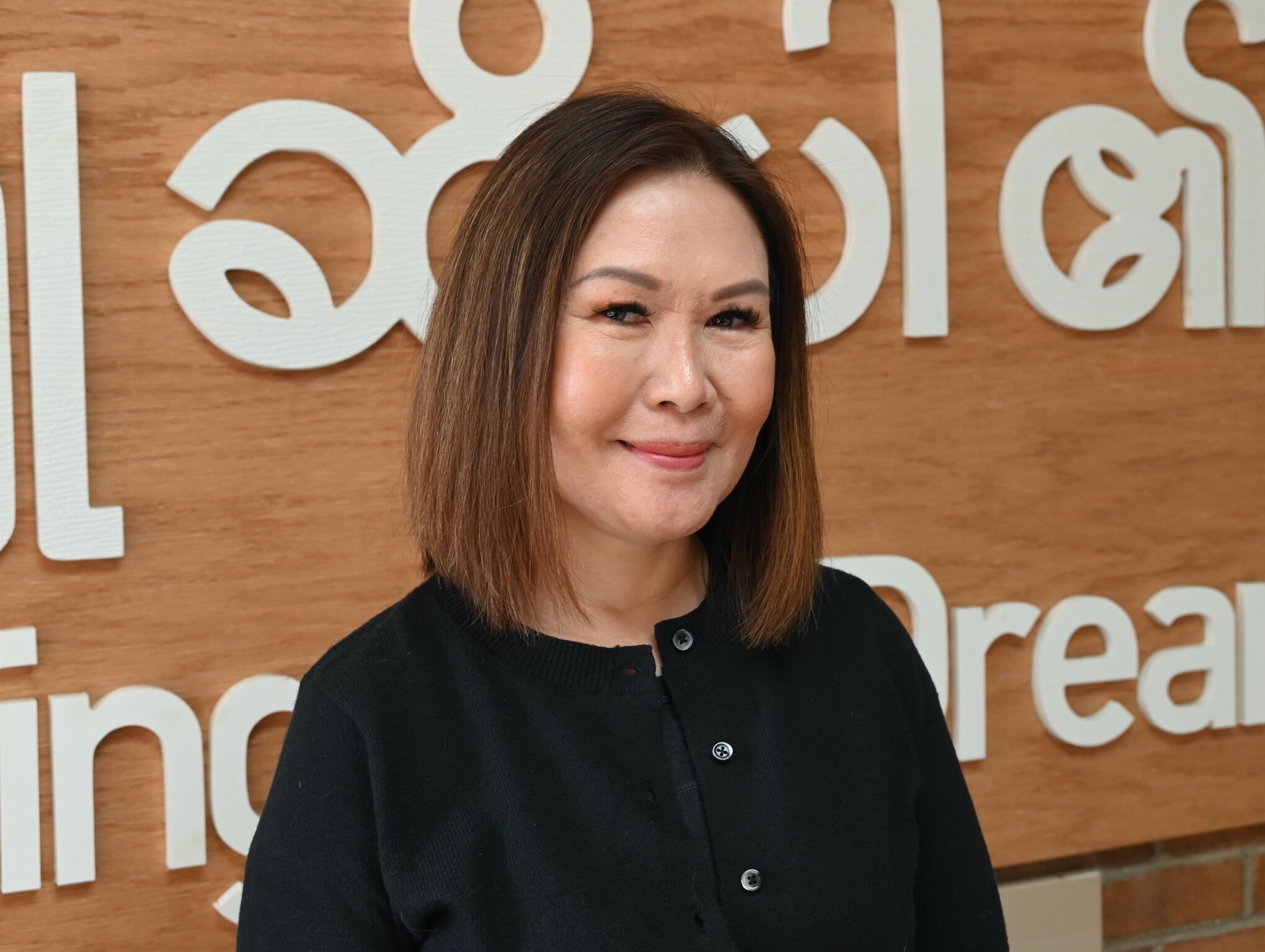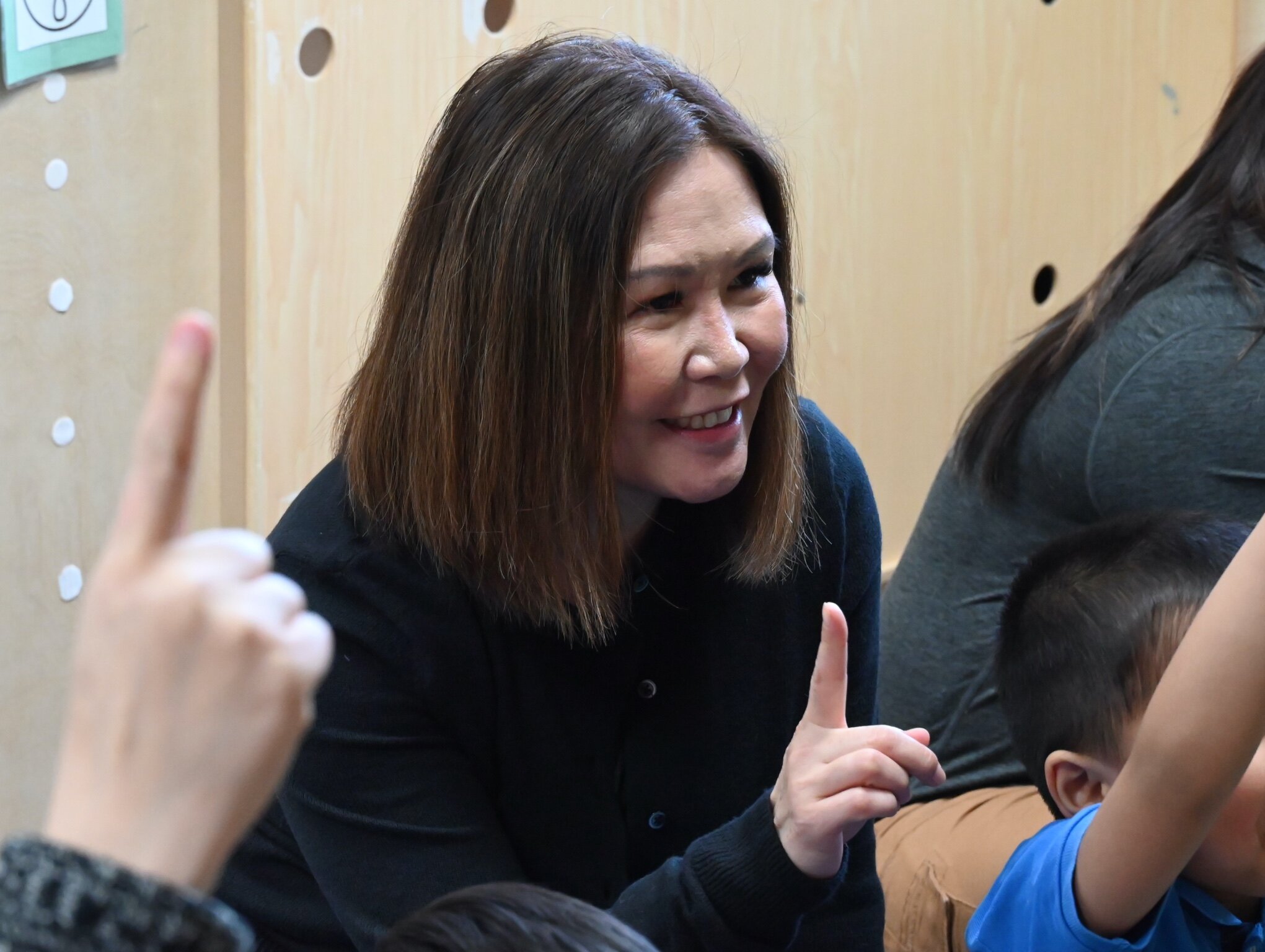Editor’s note: This story is part of Southwest Michigan Second Wave’s On the Ground Battle Creek series.
BATTLE CREEK, MI — While there continues to be a shortage of childcare workers in Calhoun County, a training program offered through the Community Action Agency of Southcentral Michigan is filling that pipeline.
The Early Childhood Career Pathway Program (ECCPP) began in 2019 with a grant from the W.K. Kellogg Foundation. The onset of the pandemic one year later, led to a decrease in enrollment numbers, says Lisa Farrell, manager of the program.
Those numbers continued to flag in 2021 when Farrell was hired.
“The field of childcare was very small because a lot of people had exited because of the pandemic,” she says. “Even in 2021, a lot of preschools and centers did not re-open because of staffing shortages. Some of those that remained open closed off rooms because they didn’t have the staff.”
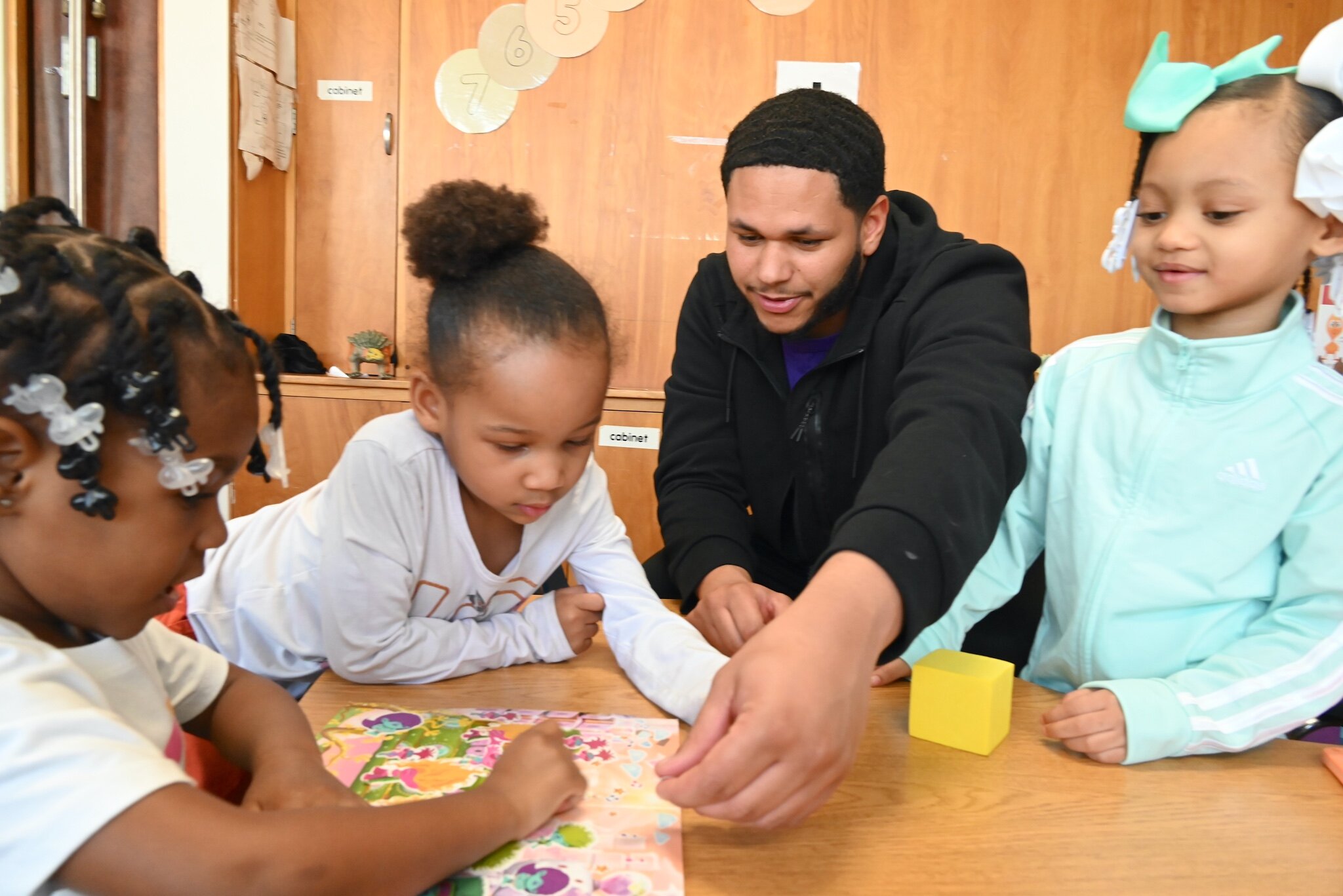
Among the examples, Battle Creek Headstart had seven rooms, only two of which were open.
Coming out of the pandemic, Farrell had 25 individuals enrolled in ECCPP. That enrollment has since grown to 215 participants and she is fielding inquiries from those seeking to take the training on an almost daily basis.
On a recent Wednesday in February, Farrell signed four people up for the training. She and two assistants oversee the enrollment process and a facilitator assists with any resources applicants may need. This level of support is important to each person’s successful completion of the training, she says.
Intentional and focused outreach in the community among local religious leaders, and nonprofits including Voces, the Burma Center, and the Women’s Co-op have increased the numbers, Farrell says.
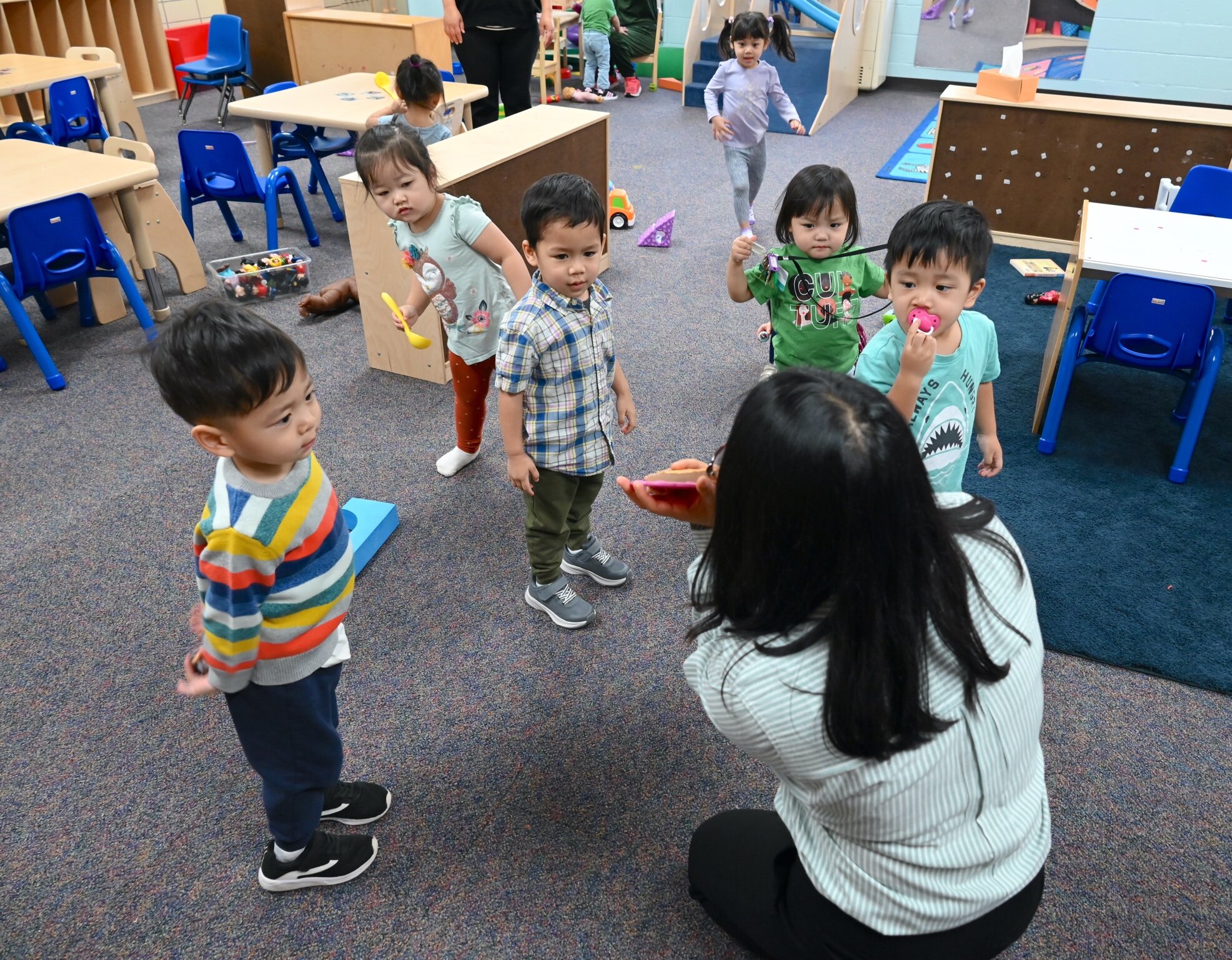
“The goal of the grant is to recruit and retain people in early childhood professions,” she says. “We’ve worked really hard to recruit in areas where people may not have thought about a career in childcare.”
The collaboration between ECCPP and the Women’s Co-op allows Co-op clients to enroll in the training program. They work 20 hours a week at a childcare center for 12 weeks and receive a small amount of money.
Halfway through, Farrell says, “We start working with them on the training.”
The first credential qualifies them to be a Child Development Associate. To earn this, they need to do 120-course hours of training in the field of Early Childhood Education. They decide if they want to have a specialty in infant, toddler, or preschool. They get experience in the classroom and put together a professional portfolio as prescribed by the CDA.

The CDA typically costs an individual $451. This cost and books and other materials and CPR training are paid through the grant.
“To get your credential, you take an exam and also are observed in a classroom with people looking at different skills,” Farrell says.
Even though this collaboration is fairly new, five Co-op clients have already been hired in the field, including Lori, who asked that her last name not be used.
Lori came to the Women’s Co-op in November in need of a job after depleting her 401K following a yearlong hospital stay that forced her to quit her current job.
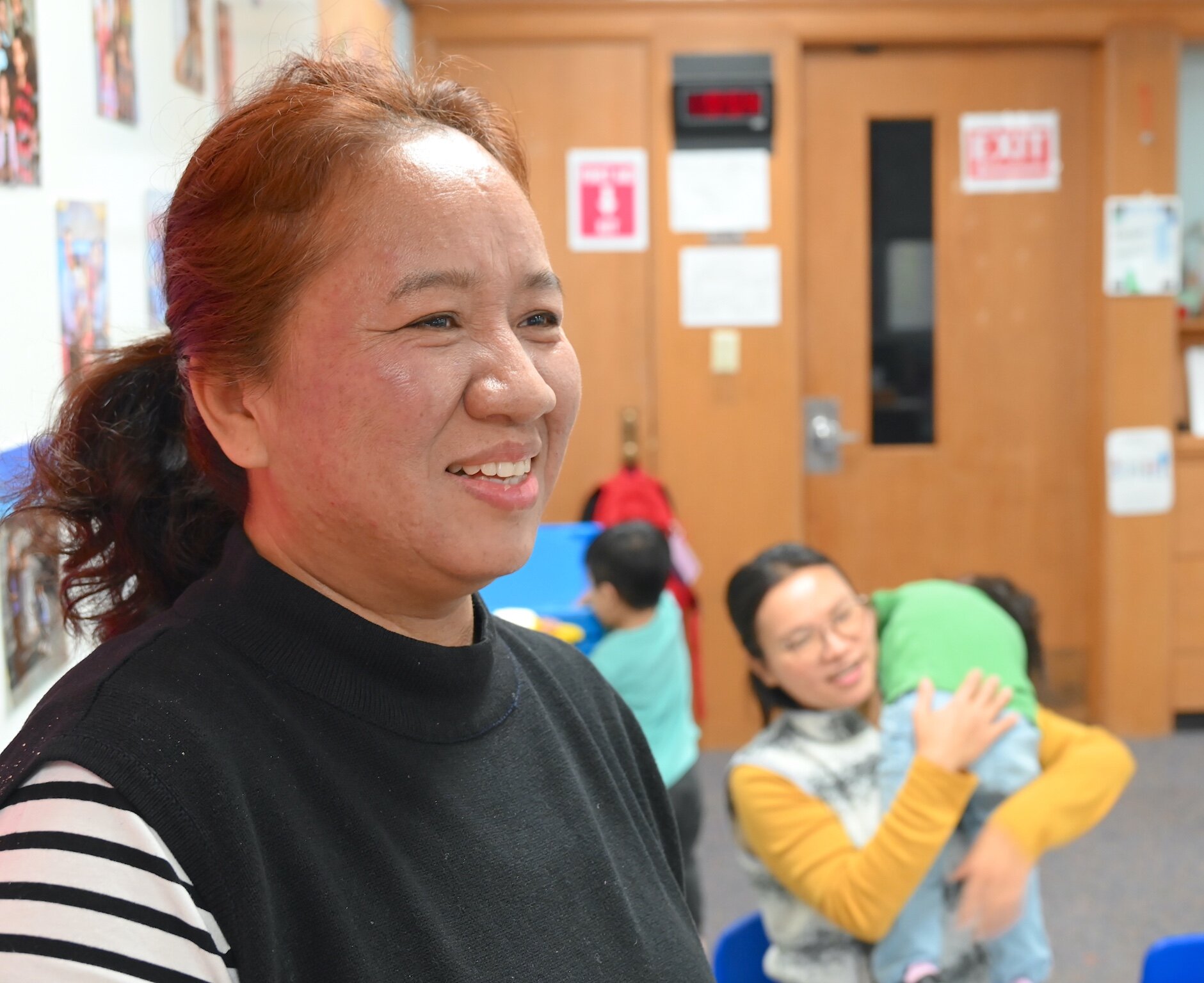
“My 401K was gone and it was taking me a long time to find a job. I was flat broke,” says Lori, who will be 62 this year. “I was getting assistance. The Women’s Co-op interviewed me for a job and asked me if I wanted to do it and I said absolutely, I need the money bad.”
That job was with Take a Break Child Care Center on 28th Street. She started there in February and works from 12:30 to 5:30 p.m. every day. Initially, her salary was covered by the Women’s Co-op, but Take A Break has since hired her and is paying her wages while she pursues her CDA which she calls a “big blessing.”
Her work with the children at Take A Break gives Lori, who never had children, opportunities she never thought possible.

“I have been looking for love for my whole life. Just somebody to unconditionally love me and the kids give me that,” she says. “I can’t wait to go to work every day to see those kids.”
The money she’s earning will enable her to pay her bills and still buy something she wants “once in a blue moon.” She owns her house and car and continues to receive a level of assistance, but says that having a steady paycheck will allow her to function as a normal person and pay bills like taxes and utilities.
“My first job was babysitting and my last job will be taking care of kids,” Lori says.
Elevating the business of childcare
19 childcare centers in Battle Creek work with Farrell and her team to take people who are working to earn their CDA.
“We want them to get their feet wet,” she says. Some, like Lori know from the moment they walk into a center that this is a career they want to pursue.

But, there also are those who have already been working at childcare centers and want to earn their CDA and advance their education beyond this to attain an Associate’s or Bachelor’s degree. Farrell equates this to careers in Nursing where someone earns a CMA (Certified Medical Assistant) certification with the opportunity to earn advanced degrees.
In 2021, Farrell says her program was getting more new childcare center staff into the ECCPP than ever before. She and her team work with each of the city’s 27 childcare centers who want employees to get their credentials.
“A lot of people we worked with are employed through the grant. We are able to offer an award amount for finishing the hours they need and they could get up to $1,500 for completing the training,” Farrell says. “Early Childhood Education is not necessarily a high-paying job. We’re looking for incentives to show we appreciate them. Anything involved in getting that credential we pay for. Earning that credential qualifies them for raises and promotions.”

Although the base pay for a childcare worker has increased, it’s still not where it needs to be for people to make a decent living, Farrell says. When she started her job with CAA in 2021, the average pay was $11 an hour which has since increased to $14.50 because of pandemic-related childcare subsidies that are now being taken away leaving childcare centers to figure out how to maintain that level of pay.
The disconnect that other childcare advocates constantly cite is echoed by Farrell who says that childcare workers aren’t being paid for the important work they’re doing to lay the foundation for future success for all children. Paying them what they’re worth would mean raising the cost of childcare for parents which could make them choose between working outside the home or quitting to stay home with their children.
“We don’t want parents to have to make that choice,” Farrell says.

A strong body of research ties the knowledge, competencies, stability, diversity, and retention of teachers and program directors directly to the quality of children’s development and learning in out-of-home programs, according to information on the Office of Early Childhood Development website.
“Career pathways create a sequence of stackable, portable credentials that reflect the sophisticated science of working with young children, combined with the supports educators need to advance their individual career progression on that pathway. Career pathways operate on two levels: a systems approach for the workforce at large and an individual approach for each professional seeking advancement.”
Farrell says her program works with those who want to earn an Associate’s degree in Early Childhood Education. A Bachelor’s degree is a requirement for those who want to be lead teachers in Great Start Readiness Program classrooms. This degree allows them to teach babies through age 8 and teach second or third grade in schools.
“If they live in Battle Creek and want to start an education we can help with that,” Farrell says. “If they go for an associates they are required to fill out a FAFSA form. We help them with that and also help them fill out the Michigan Reconnect scholarship. A lot of this group is covered in that.”
Because Michigan Reconnect doesn’t cover the cost of books, ECCPP will through a last-dollars scholarship.
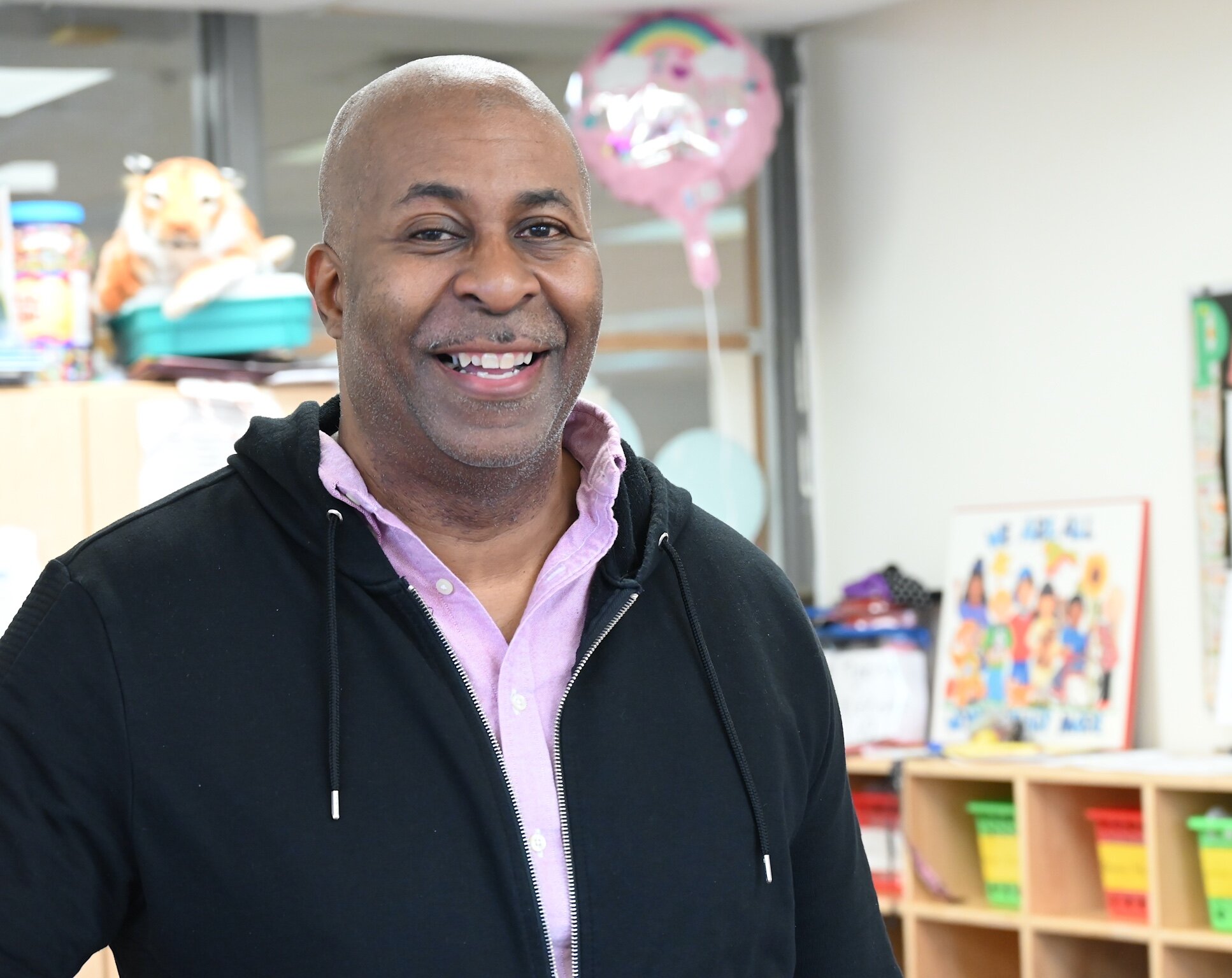
Farrell says there is no requirement on the length of time an individual may take to complete this degree or the CDA certification with some finishing in two months and others in three years.
“Everything is online and they can do it on their own time. Some people who are going for their CDA want to take college classes at the same time and even college classes for ECE are offered online. It makes it easy but it’s a new way of learning for a lot of these younger women and men. Kids of the pandemic have no desire to go into a school. Most of the younger group prefer to do everything online,” she says. “We have eight career coaches at Kellogg Community College who assist them with the process.”
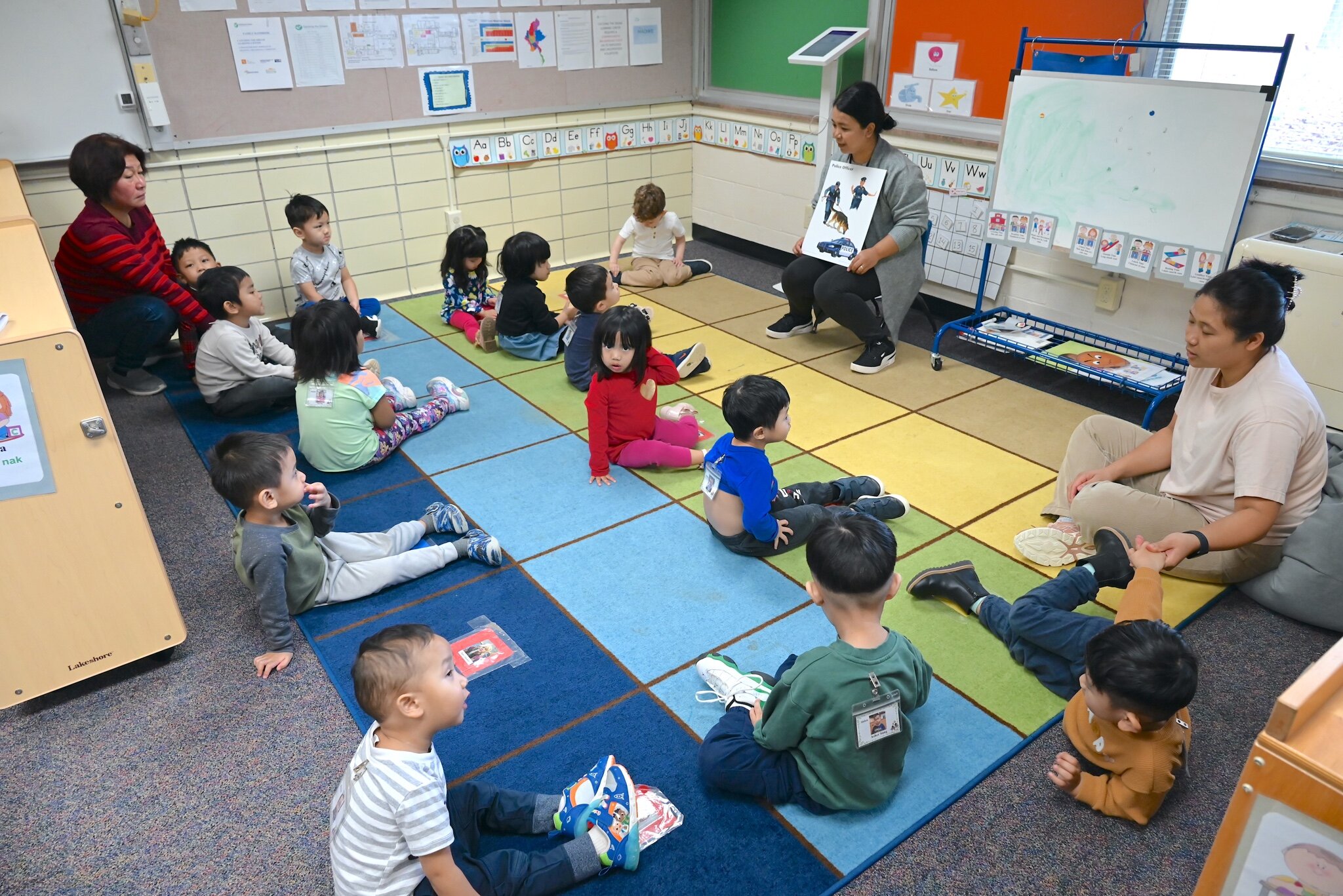
As efforts continue to increase the number of individuals looking at childcare as a viable career, efforts continue to increase the general public’s understanding of the importance of this work to the future success of all children and the world they’ll operate in.
“One of the things we say at the orientation is that we all have to speak out and never demean childcare ourselves,” Farrell says. “I really look to people like Kathy Szenda Wilson who are working on policy-making and the political end of the spectrum in all of this. These policymakers are the ones who can really make a difference in this work. Our children and their families deserve nothing less.”


